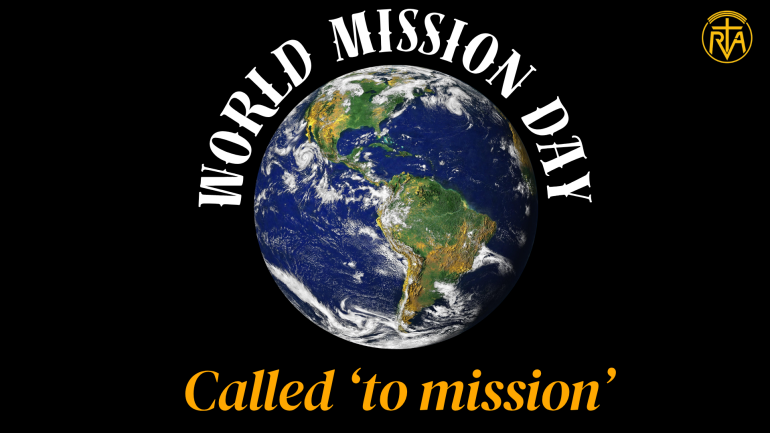Called ‘to mission’

‘The Mission’ is a 1986 British period drama film about the experiences of a Jesuit missionary in 18th-century South America. The film is rather complex, though compelling and spiritually stirring. In essence, it is about the stand that the Spanish Jesuits take to protect the identity of a remote South American tribe (the Guarani Indian people). The film is intertwined with the political pressures of a colonial power, the predatory racism of European settlers who are pro-slavery, and the pragmatic needs of the Jesuits (and the Church).
‘The Mission’ portrays the resilience of the Guarani people despite all odds and the efforts of the Jesuits to accompany them in order to protect their rights, their customs, and, above all, to prevent them from being swallowed by the lucrative slave market of that time. The film deals with bureaucratic hassles, political and religious machinations, intrigue, greed for power and profits, among other human frailties; however, at the same time, it also focuses on the challenges and hostilities one has to face when attempting to take on the system, the powers, and other stakeholders.
Above all, it is a film about prophetic witnessing, the trials and hardships disciples of Jesus have to face when they demonstrate the unflinching courage to go forth to the peripheries and identify completely with the people who are suffering.
The Catholic Church observes ‘World Mission Day’ on Sunday, October 19. There is added significance this year because it is the Jubilee Year, and the focus is on becoming ‘pilgrims of hope’. Above all, given the fact that the Synodal process was completed just a year ago, the emphasis continues to be on the Synodal Journey with the three interrelated dimensions of communion, participation, and mission.
One of the last messages our beloved Pope Francis gave the Church and the world before he was called to eternal life was his message for ‘World Mission Day 2025’. In the opening paragraph, he says, “For World Mission Day in the Jubilee Year 2025, the central message of which is hope, I have chosen the motto: ‘Missionaries of Hope Among All Peoples’. It reminds individual Christians and the entire Church, the community of the baptized, of our fundamental vocation to be, in the footsteps of Christ, messengers and builders of hope.”
Pope Francis contextualises his message in the grim realities of today and in the issues that afflict the ordinary person. He says, “Impelled by this great hope, Christian communities can be harbingers of a new humanity in a world that, in the most ‘developed’ areas, shows serious symptoms of human crisis: a widespread sense of bewilderment, loneliness, and indifference to the needs of the elderly, and a reluctance to make an effort to assist our neighbours in need. In the most technologically advanced nations, ‘proximity’ is disappearing: we are all interconnected but not related.”
In this last quarter of the Jubilee Year 2025, it is important that we revisit the Bull of Indiction Spes Non Confundit (Hope Does Not Disappoint), dated May 9, 2024. In it, Pope Francis clearly spelled out the various groups that seem to have succumbed to despair. He throws out a direct challenge to all: if we are serious about this Jubilee Year, we must have the prophetic courage to address the root causes of all that is wrong in our world today. We must be witnesses. As pilgrims, we must embrace hope in its entirety, be witnesses to all around us, and ensure that this hope becomes a reality for those who need it most. That is Mission, and a call to Mission!
The second part of the Synodal Report, A Synodal Church in Mission, reiterates the non-negotiable truth that we are “All Disciples, All Missionaries.” There is absolutely no debate about the truth that the Church is a mission. For some, the words ‘Mission’ and ‘Missionary’ are anathema and used derogatively; for others, they are suspect, a Christian activity to proselytise and indulge in conversion. This could not be farther from the truth. The word ‘mission’ is not the monopoly of any one group; it belongs to all humankind. In general, the meaning of ‘mission’ is an important task, duty, or purpose that a person or group is assigned to complete.
It can refer to a specific official job, a vocation or calling in life, a diplomatic or religious delegation, or a specific objective like a space flight or a military assignment. Today, several Hindu groups like the Ramakrishna Mission and Chinmaya Mission have it in their names. It helps focus on their key programmes such as social service, education, and spiritual outreach. The corporate sector and most organisations worth their salt have meaning essentially because of their ‘mission statement’.
‘Mission’, therefore, is all-embracing; it belongs to all, it cannot be exclusive or become the monopoly of one religion or ideology. An oft-used quote says, “Life is a mission, not a career. A career is a profession; a mission is a cause. A career asks: what is in it for me? A mission asks: How can I make a difference?” In a world that is overwhelmed with hate, violence, injustice, and despair, we are all called to make that difference. In a nutshell and in essence, as in the film The Mission, every human being has a calling and responsibility to be a ‘missionary of hope among all peoples’.








